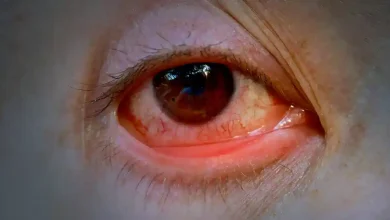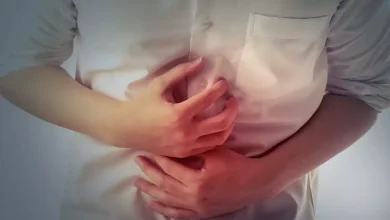All about Cholera

What is Cholera?
Cholera is a bacterial disease that generally spreads through contaminated water and causes severe dehydration and diarrhea. It is an infectious disease caused by a bacteria known as Vibrio cholera. If not treated promptly, diarrhea can be life-threatening within a period as short as a few hours even in previously healthy people. Contaminated water was the main cause of the spread of cholera but modern sewage and water treatment have practically eliminated cholera from most parts of the world but it still exists in some parts of Africa, Haiti, and Southeast Asia. The Cholera epidemic mostly occurs when poverty, war, or natural disasters compel people to stay in crowded conditions without proper sanitation facilities.

What are the Symptoms of Cholera?
Cholera is an extremely terminal disease that can cause severe acute watery diarrhea. The main symptoms of cholera may include:
Diarrhea: Sudden onset of diarrhea is one of the main symptoms of diarrhea and it can cause rapid and dangerous fluid loss of as much as 1 litre an hour. Diarrhea because of cholera generally has a light-coloured, milky appearance and is a little bit different from normal diarrhea.
Nausea and Vomiting: In the early stages of cholera nausea and vomiting are quite common and can last for hours.
Dehydration: Your body will be dehydrated within hours after cholera symptoms begin which can range from mild to severe. Dehydration because of cholera can cause a loss of 10% or more of body weight which is the symptom of severe dehydration. Dehydration because of cholera is generally quite severe and can lead to symptoms such as irritability, fatigue, sunken eyes, a dry mouth, extreme thirst, and dry and frazzled skin.
Muscle cramps: It occurs because of the swift loss of salts like sodium, chloride, and potassium.
What are the Causes of Cholera?
A bacterium called Vibrio cholera causes cholera infection which grows in contaminated water. The main causes of cholera include:
Surface or well water: Contaminated public wells or surface water are the main sources of most cholera outbreaks. People residing in crowded conditions without proper sanitation are at higher risk of getting cholera.
Seafood: Raw or undercooked seafood, especially shellfish, can expose you to cholera bacteria and be infected by it.
Raw fruits and vegetables: Eating unpeeled and raw fruits and vegetables is a recurring cause of cholera infection.
Grains: If grains including rice and millet are cooked and kept at room temperature for several hours then there are chances of these grains being contaminated and growing cholera bacteria.

What are the Risk Factors of Cholera?
Some common risk factors of cholera may include:
Poor sanitary condition: Cholera is more likely to develop in poor sanitary situations where it’s difficult to maintain safe water conditions. Places such as refugee camps, impoverished countries, and areas afflicted by famine, war, or natural disasters are more prone to growing cholera bacteria.
Decreased or non-existent stomach acid: Cholera bacteria can’t live in acidic areas, and the acid in our stomach often serves as a defense against infection. But people with low levels of stomach acid like children, older adults, and people who take antacids, H-2 blockers, or proton pump inhibitors don’t have this shield, so they’re at higher risk of developing cholera.
Household exposure: If there are people near you who have the disease then you’re at increased risk of getting it too.
Type O blood: For reasons, unknown people with type O blood are more likely to develop cholera compared with people with other blood types.
Raw or undercooked shellfish: Eating shellfish from waters with cholera-inducing bacteria greatly increases your risk of getting cholera.
What are the Complications of Cholera?
Diarrhea and dehydration are the most common complications of cholera which can lead to fluid loss and heavy loss of fluid and electrolytes can lead to even death within a few hours. Apart from these two complications, some other complications of cholera include:
Low blood sugar (hypoglycemia): Cholera can cause severely low levels of blood sugar (glucose) and can make people too ill to eat. Children and old people are at the biggest risk of this complication, which can lead to unconsciousness, seizures, and sometimes even death.
Low potassium levels: Cholera can cause the loss of big amounts of minerals, such as potassium, through stools. Very low potassium levels adversely affect heart and nerve function and can be fatal.
Kidney failure: Cholera can make kidneys lose their filtering capability, along with large amounts of fluids and electrolytes which results in wastes building up in the body — a condition that can be potentially life-threatening. Kidney failure often accompanies shock in people with cholera.
How Cholera is Diagnosed?
If you are experiencing symptoms of cholera, then contact a doctor who can diagnose whether you have cholera by testing your stool sample in the lab to detect cholera bacteria.
What are the Treatment Options Available for Cholera?
Vaccines are available for preventing cholera and anyone between ages 2 and 64 can get them. Cholera vaccines are not considered effective for the prevention of cholera in big populations or during epidemics. Their usefulness is usually restricted to giving short-term protection for the people visiting areas where cholera is endemic.
If you are travelling to a place where cholera is widespread then there are some precautions you can take to protect yourself from getting cholera that include:
- Washing your hand regularly with antibiotic soap or handwash
- Always drink boiled water
- Avoid unpasteurized dairy products, raw shellfish, and raw food
- Only eat raw vegetables and fruits if you peel them yourself after washing them carefully
- Properly wash the dishes and utensils that you use to eat or prepare food
If you experience symptoms of cholera then immediately visit a doctor and start treatment because cholera can cause death within a few hours. Treatment options for cholera include:
Rehydration:Rehydration is important to replace lost fluids and electrolytes by drinking enough amount of oral rehydration salts, which are mixed with water
and other electrolyte solutions. The ORS solution is also available in a powder form that you can drink after mixing it with boiled or bottled water.
If not rehydrated properly and in time, around half the people with cholera die but the death rate with treatment is very low less than 1%.
Intravenous fluids: People with cholera usually get well with oral rehydration alone, but if you are severely dehydrated then you may need intravenous fluids also.
Antibiotics: Antibiotics may be needed to treat cholera-related diarrhea.
Zinc supplements: Zinc supplements are helpful to reduce diarrhea, especially among children with cholera.
Living with Cholera
Though cholera is not a very common disease still cases of cholera come up once in a while in some parts of the world. Cholera is mainly caused by contaminated water so it’s very important to have proper sanitation to prevent cholera. Cholera is a fatal disease that can cause death within a few hours so if you notice symptoms of cholera especially severe dehydration then immediately consult a doctor, get yourself diagnosed, and start treatment accordingly. In serious cases, the fast loss of big amounts of fluids and electrolytes can result in death within hours. In comparatively less extreme cases, people who don’t proper treatment may die due to dehydration and shock hours to days after cholera symptoms start appearing. But the better part is that cholera is easily treatable if diagnosed early. People with mild to moderate cases generally get better within a week and people with severe cases of cholera also recover fully in a week or so if they get proper medical care.
Whom to Consult?
Cholera is almost eliminated from industrialized nations but the risk is still there if you visit an area where cholera still exists. If you develop diarrhea after visiting a cholera-prone area immediately get yourself checked and seek treatment right away.




